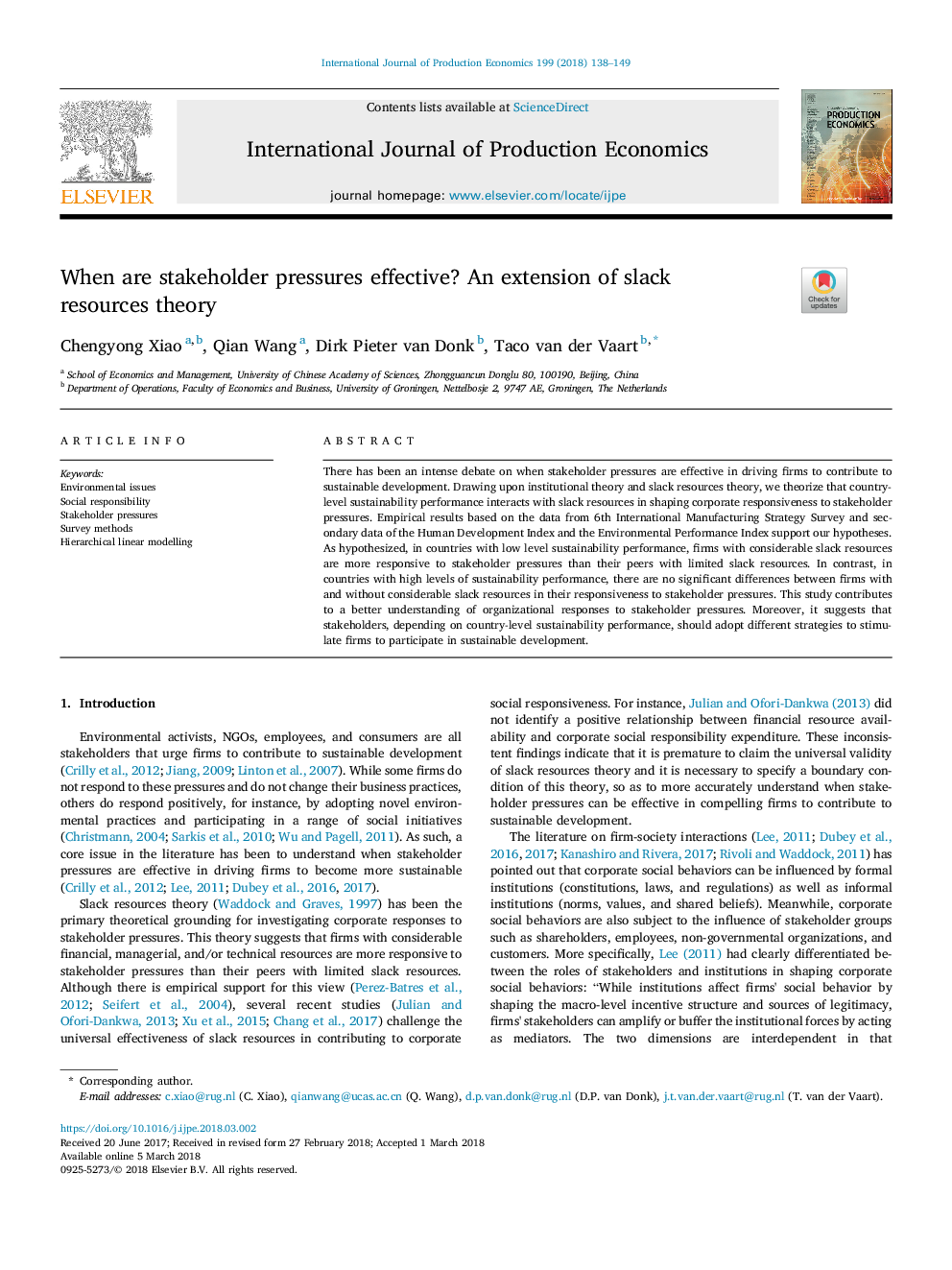ترجمه فارسی عنوان مقاله
هنگامی که فشارهای ذینفع موثر است؟ گسترش یک نظریه منابع انبساطی
عنوان انگلیسی
When are stakeholder pressures effective? An extension of slack resources theory
| کد مقاله | سال انتشار | تعداد صفحات مقاله انگلیسی |
|---|---|---|
| 96277 | 2018 | 12 صفحه PDF |
منبع

Publisher : Elsevier - Science Direct (الزویر - ساینس دایرکت)
Journal : International Journal of Production Economics, Volume 199, May 2018, Pages 138-149
ترجمه کلمات کلیدی
مسائل زیست محیطی، مسئولیت اجتماعی، فشارهای ذینفع، روش های بررسی، مدل سازی خطی سلسله مراتبی،
کلمات کلیدی انگلیسی
Environmental issues; Social responsibility; Stakeholder pressures; Survey methods; Hierarchical linear modelling;

